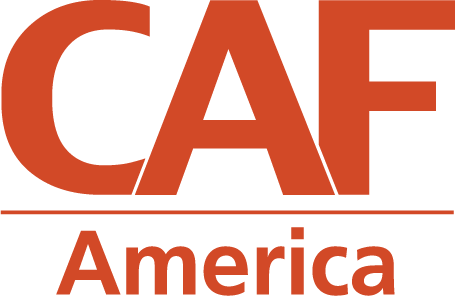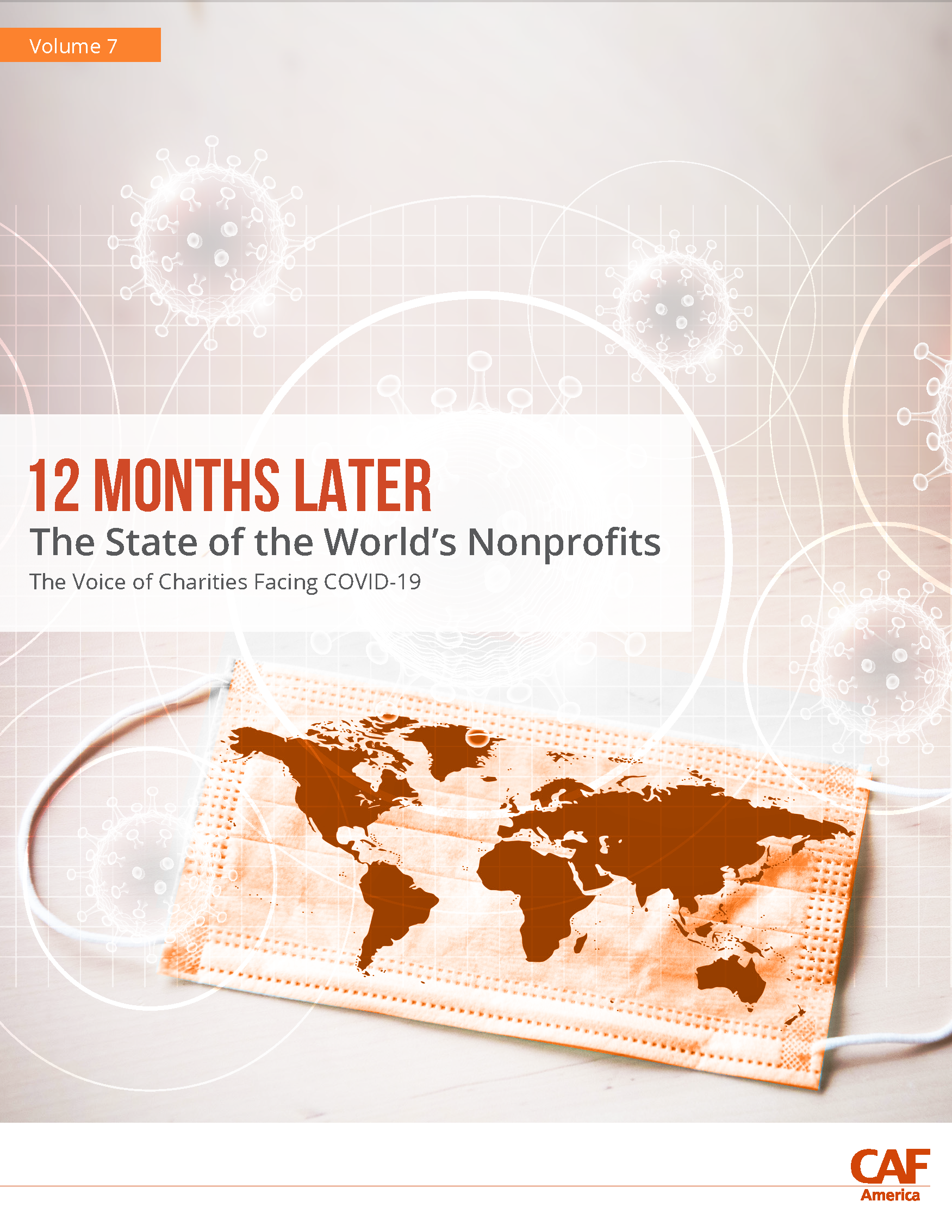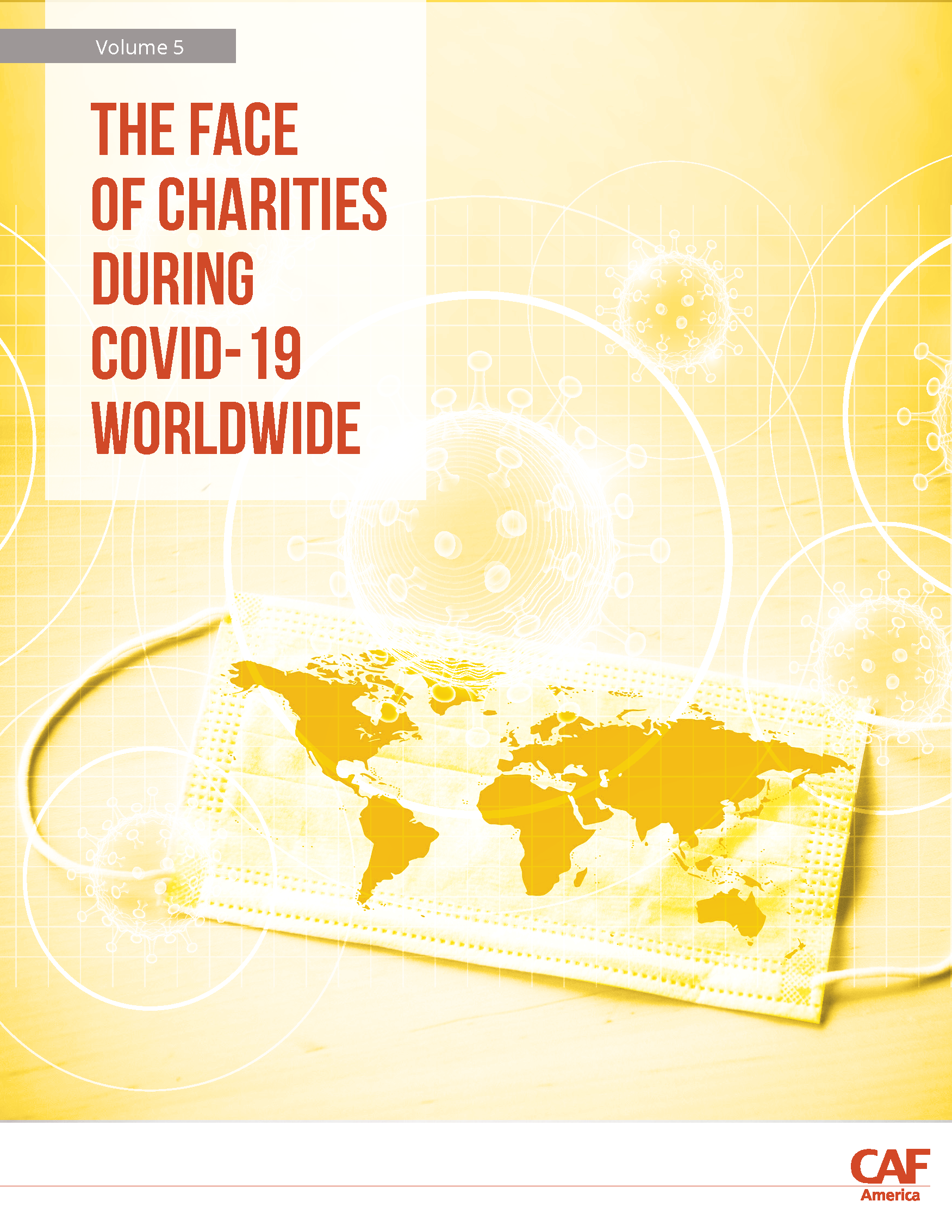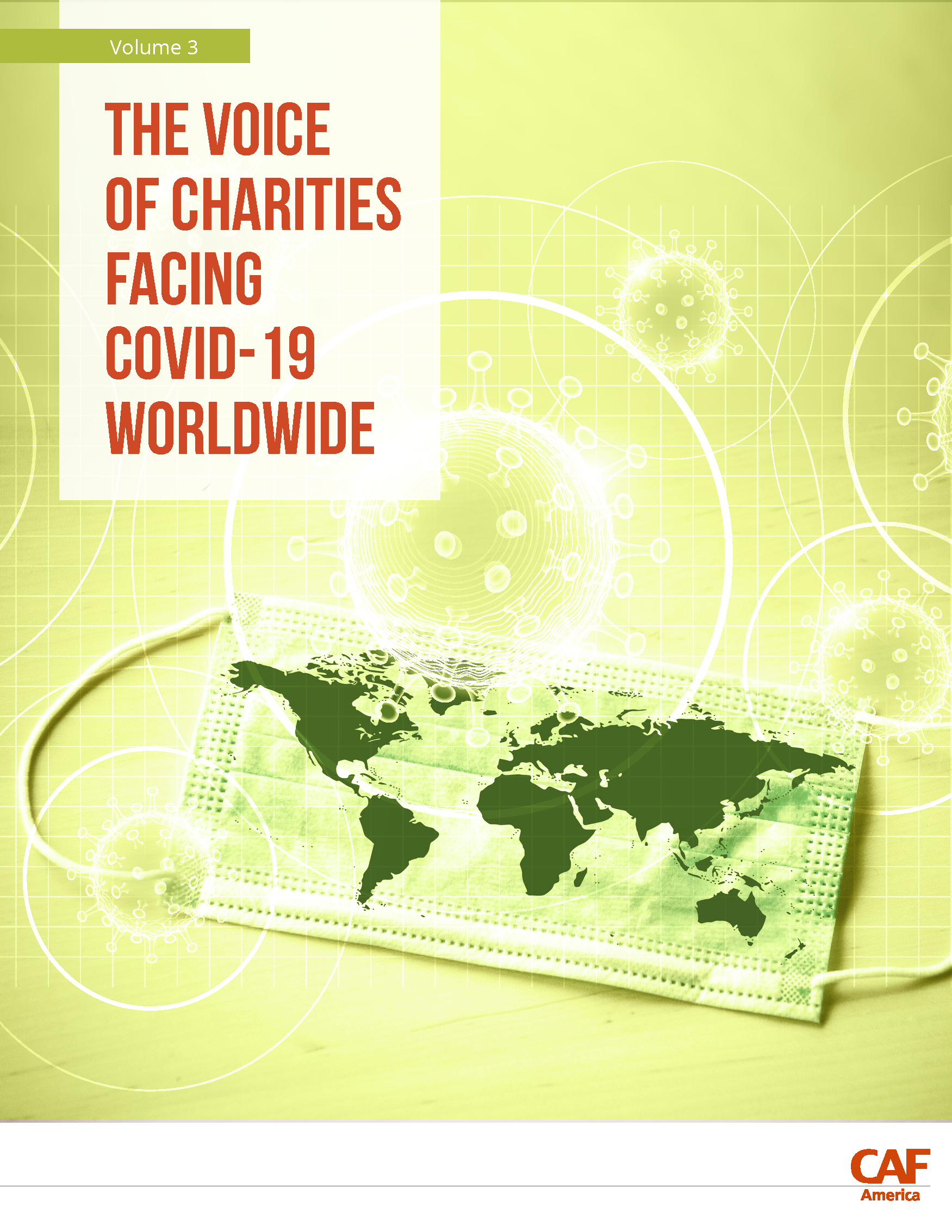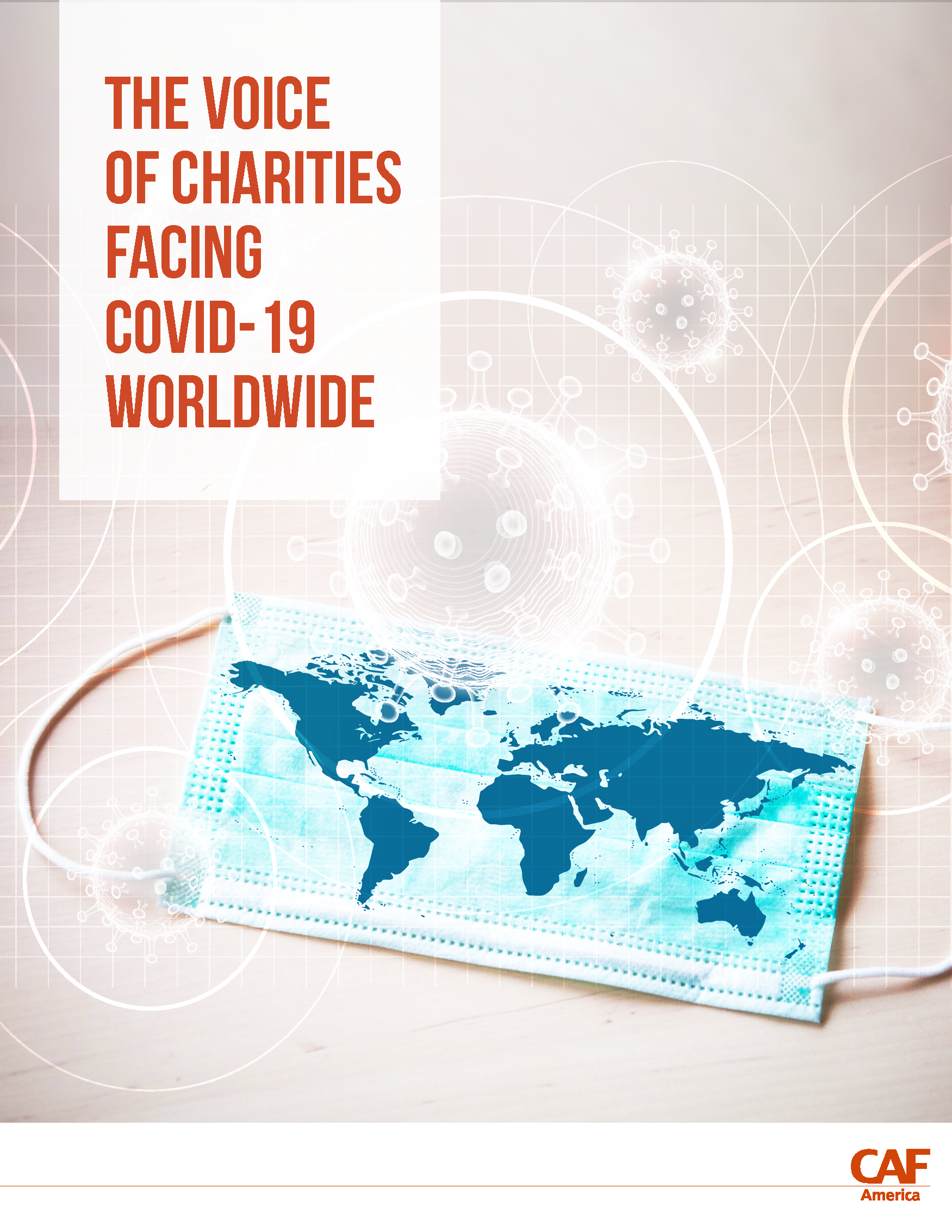COVID-19 Reports
The Voice of Charities During COVID-19When the World Health Organization declared COVID-19 a global pandemic in March, 2020, CAF America embarked on a journey to chronicle the impact of the crisis on nonprofits worldwide and help donors develop data-driven giving strategies.
What we’ve witnessed and captured in the process is an expansive picture of tenacity, humility, compassion, and empathy. In a time of social isolation for so many, the pandemic has had a counterbalancing effect of bringing the global community closer into alignment for a purpose that transcends borders and cultures.
The pandemic has laid bare the need for a paradigm shift, one that puts emphasis on long-term strategies founded on authentic relationships and trust. Understanding that impactful philanthropy requires collaboration, flexibility, commitment, and streamlined progress measurement strategies, donors are showing a renewed commitment to greater flexibility.
The light at the end of the pandemic remains dim. While some countries are able to implement aggressive vaccination campaigns to reach herd immunity and plan for slowly opening, others have a much longer road ahead. Whether confronted with a surge in COVID-19 cases or fighting to rebuild shattered lives, communities around the world rely on nonprofits to provide critical services, which would not be possible without the generous support of donors close and far.
The Voice of Charities Facing COVID-19 | Volume 8
In its eighth COVID-19 survey conducted in August 2021, CAF America polled 436 charitable organizations operating in 5 countries (Brazil, Argentina, Russia, India, and South Africa) to report on their current status and outlook for the future.
This report takes account of diverse nonprofits, nearly all of which remain operational, to identify what had to change in their operating context, their relationships with donors, and their approach to achieving their mission to be able to support their communities during the past year. The survey prompted respondents to reflect on the impact the pandemic has had on their work and share their present vision for an uncertain future.
Donors can use this current, cross-sectional snapshot of nonprofits worldwide to inform their giving strategies as they reimagine their roles in supporting their partners’ efforts to build and reinforce their organizational resilience. Building on the insights corporate donors shared in the fourth volume of this series, excerpts from recent interviews will provide readers a window into how the pandemic is shaping the future of corporate philanthropy.
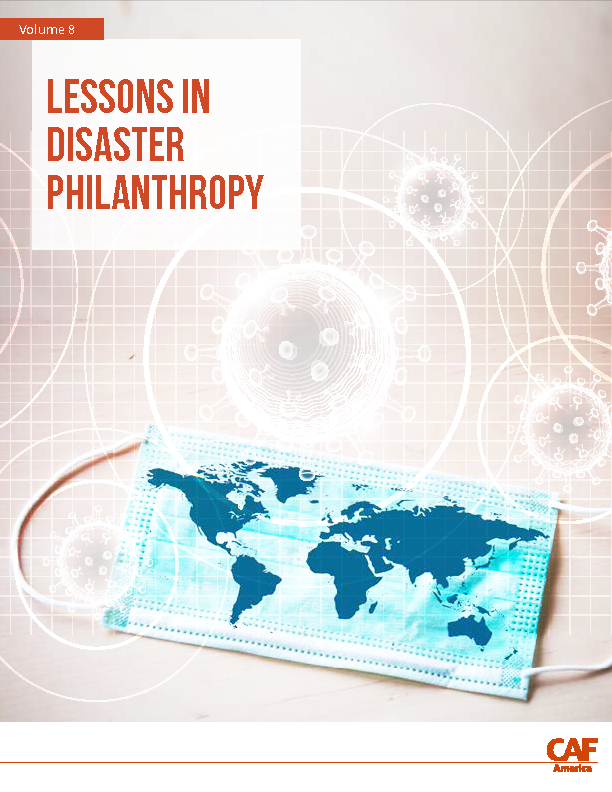
Read the Reports

Volume 8
COVID-19: Lessons in Disaster Philanthropy
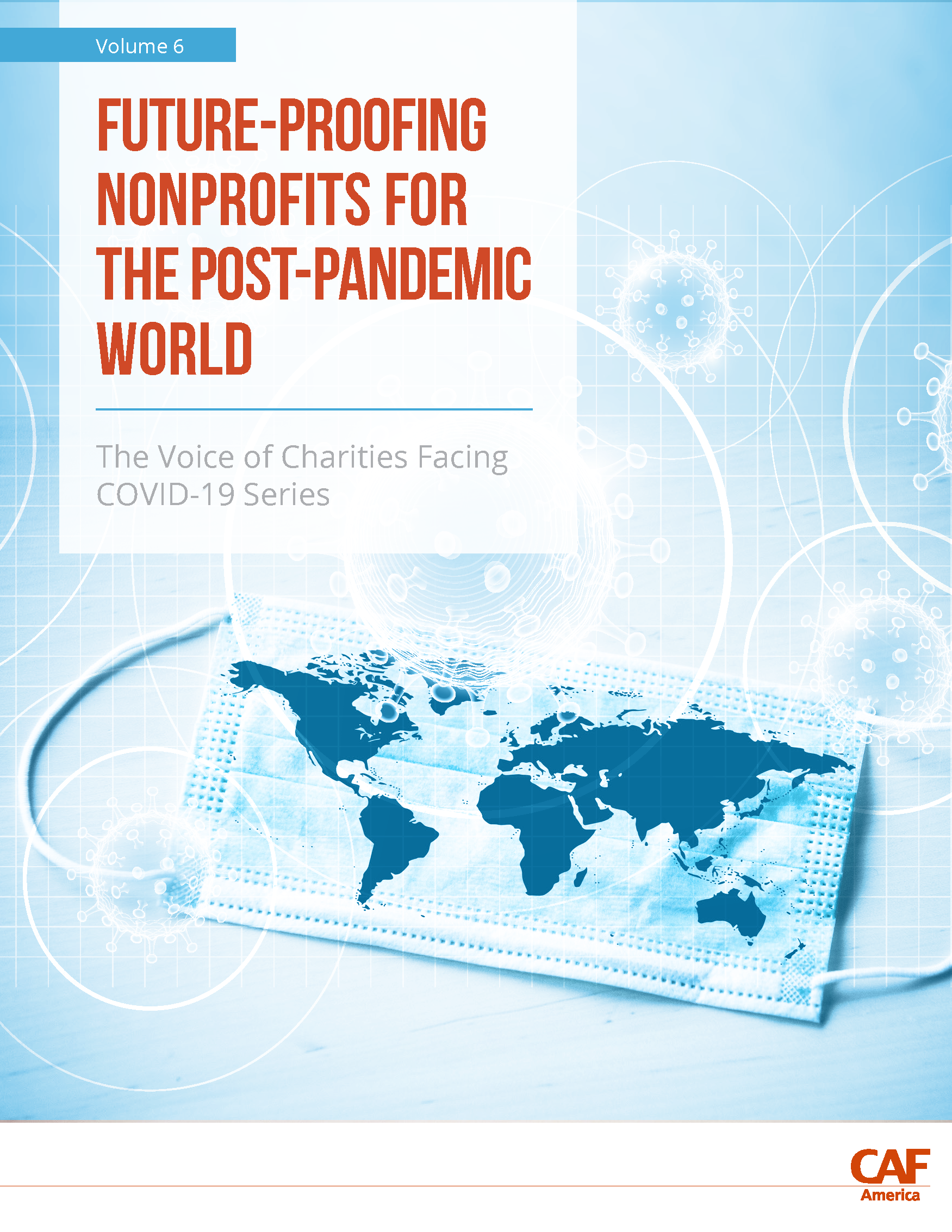
Volume 6
Future-Proofing Nonprofits for the Post Pandemic World
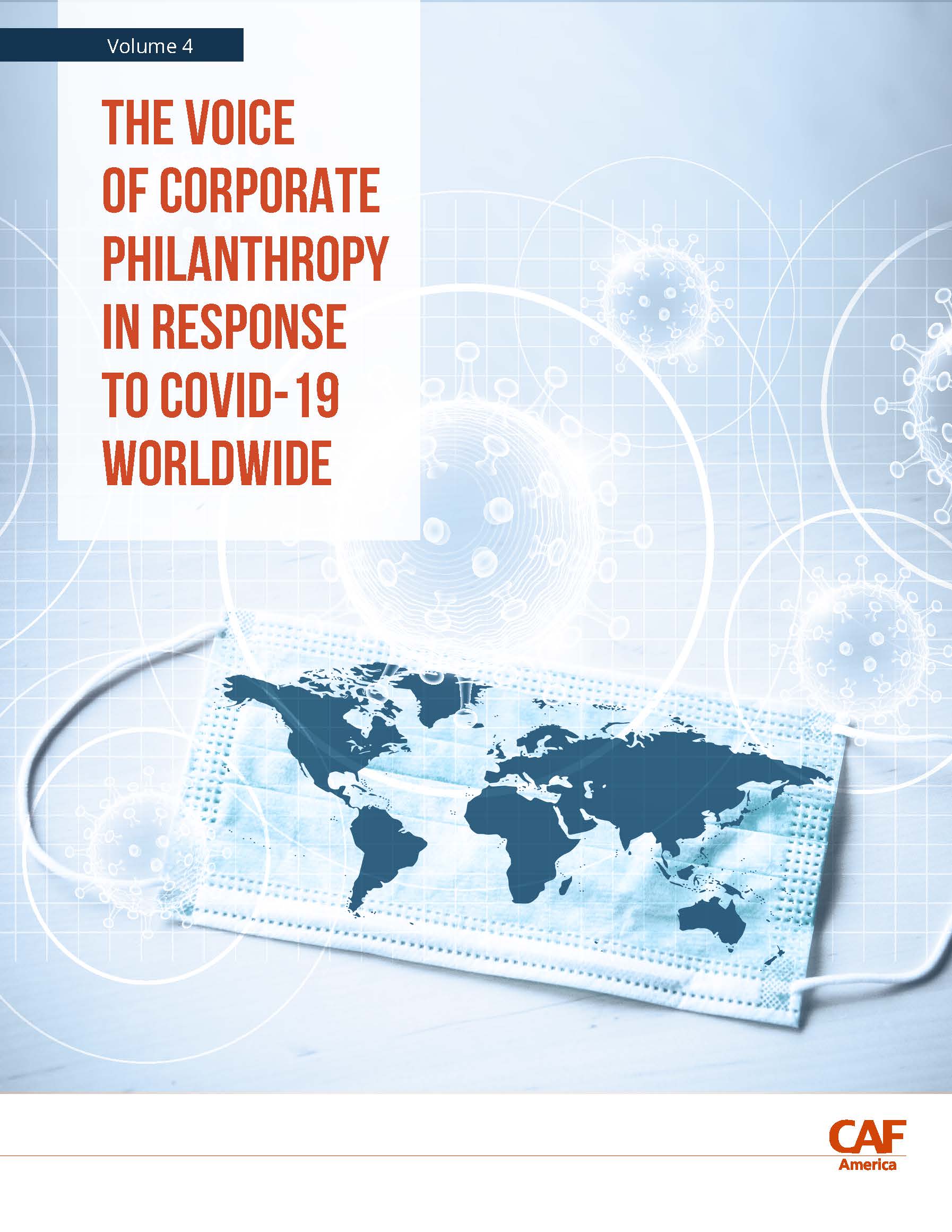
Volume 4
The Voice of Corporate Philanthropy in Response to COVID-19 Worldwide
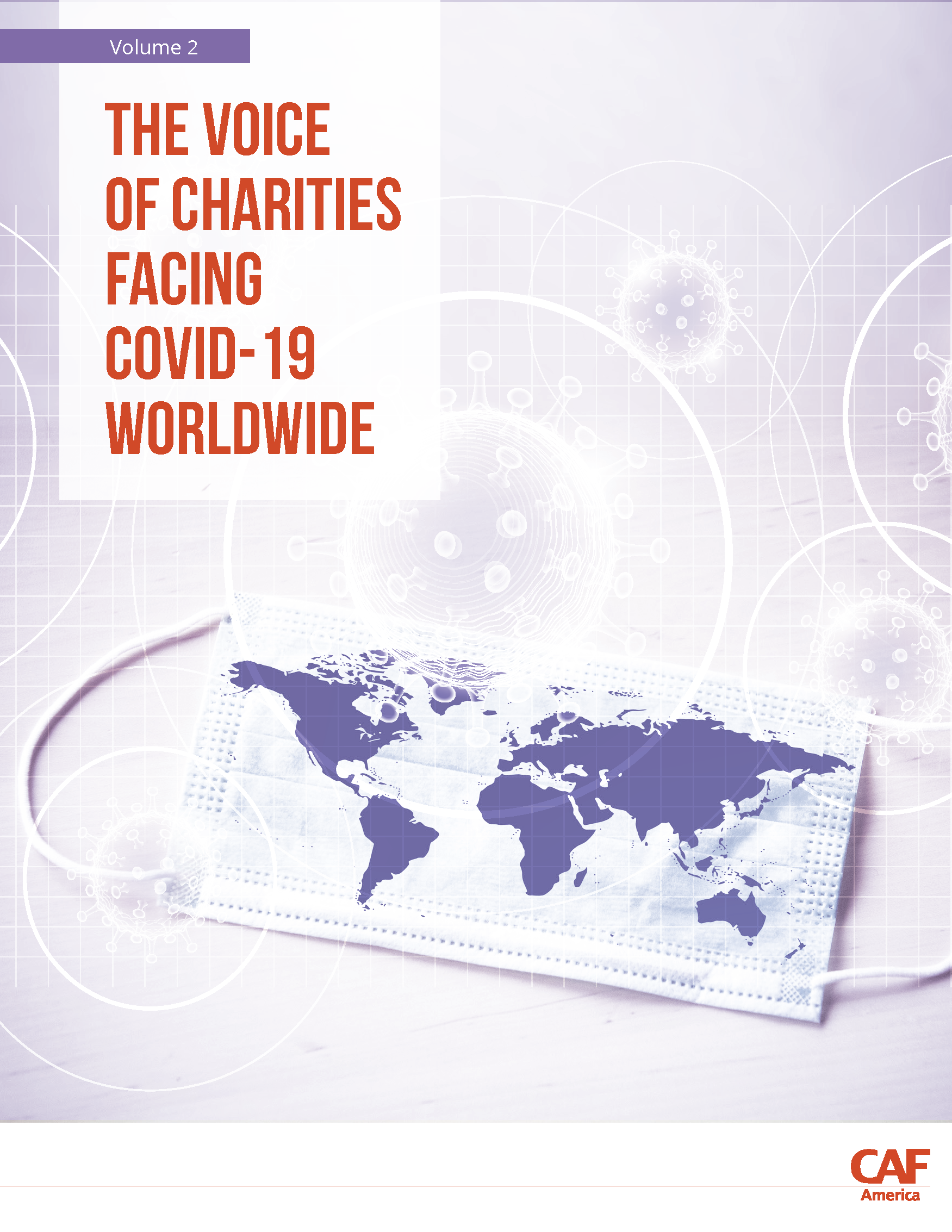
Volume 2
The Voice of Charities Facing COVID-19 Worldwide
Make a Gift Today
With CAF Canada, you can confidently make a donation to support an established fund or a validated international project.
We are here to help
Contact the CAF Canada team to learn more about our bespoke services.
Join our mailing list
Stay up to date on the latest trends and stories in cross-border philanthropy.
